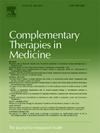Honey for managing oral mucositis induced by cancer therapies: An overview of systematic reviews
IF 3.5
3区 医学
Q1 INTEGRATIVE & COMPLEMENTARY MEDICINE
引用次数: 0
Abstract
Purpose
To synthesize and evaluate the quality of systematic reviews focusing on the use of honey for both the prevention and treatment of oral mucositis induced by cancer therapies.
Methods
An overview of systematic reviews was conducted by searching five electronic databases from inception to January 2024 to identify relevant studies evaluating the effectiveness of honey in the prevention and treatment of cancer therapy-induced oral mucositis.
Results
Twelve reviews were included, with seven (58.3 %) published after 2018. Five systematic reviews, four of which were rated as high quality, consistently found that honey significantly reduces the occurrence of severe radiation-induced oral mucositis (grades III and IV). Honey may also help alleviate severe pain requiring analgesics and reduce treatment interruptions, particularly among adult patients undergoing radiotherapy. However, findings regarding honey’s effectiveness in reducing the overall incidence of radiation-induced oral mucositis, regardless of severity, were inconsistent. These discrepancies are likely due to variations in patient populations, honey formulations, and timing or duration of administration. Evidence regarding honey's efficacy in chemotherapy- and chemoradiotherapy-induced mucositis remains inconclusive due to methodological limitations, clinical heterogeneity, and a limited number of high-quality studies.
Conclusion
Honey may be beneficial in reducing the incidence of severe oral mucositis (grades III and IV), relieving pain, and minimizing treatment disruptions in adult patients undergoing radiotherapy. However, its effectiveness across all grades and treatment modalities remains uncertain due to inconsistent findings, clinical heterogeneity, and methodological limitations. Further high-quality studies are needed to standardize honey types and dosing regimens and to stratify outcomes by mucositis grade, patient age, and cancer therapy type.
Study Registration
PROSPERO Protocol registration ID: CRD42024532801
蜂蜜用于治疗癌症治疗引起的口腔黏膜炎:系统综述
目的对蜂蜜预防和治疗癌症所致口腔黏膜炎的系统综述进行综合评价。方法通过检索5个电子数据库,从建立之初至2024年1月,对评价蜂蜜预防和治疗癌症治疗性口腔黏膜炎有效性的相关研究进行系统综述。结果纳入12篇综述,其中7篇(58.3 %)发表于2018年以后。五项系统评价,其中四项被评为高质量,一致发现蜂蜜显著减少严重辐射引起的口腔黏膜炎的发生(III级和IV级)。蜂蜜还可以帮助缓解需要止痛剂的严重疼痛,减少治疗中断,特别是在接受放射治疗的成年患者中。然而,关于蜂蜜在降低辐射引起的口腔黏膜炎的总体发病率方面的有效性,无论其严重程度如何,研究结果并不一致。这些差异可能是由于患者群体、蜂蜜配方和给药时间或持续时间的差异。关于蜂蜜对化疗和放化疗引起的粘膜炎的疗效的证据,由于方法学的限制、临床异质性和数量有限的高质量研究,仍然没有定论。结论蜂蜜可能有助于降低重度口腔黏膜炎(III级和IV级)的发生率,缓解疼痛,并减少成人放疗患者的治疗中断。然而,由于研究结果不一致、临床异质性和方法学的局限性,其在所有级别和治疗方式中的有效性仍不确定。需要进一步的高质量研究来标准化蜂蜜类型和给药方案,并根据粘膜炎等级、患者年龄和癌症治疗类型对结果进行分层。研究注册普洛斯佩罗协议注册ID: CRD42024532801
本文章由计算机程序翻译,如有差异,请以英文原文为准。
求助全文
约1分钟内获得全文
求助全文
来源期刊

Complementary therapies in medicine
医学-全科医学与补充医学
CiteScore
8.60
自引率
2.80%
发文量
101
审稿时长
112 days
期刊介绍:
Complementary Therapies in Medicine is an international, peer-reviewed journal that has considerable appeal to anyone who seeks objective and critical information on complementary therapies or who wishes to deepen their understanding of these approaches. It will be of particular interest to healthcare practitioners including family practitioners, complementary therapists, nurses, and physiotherapists; to academics including social scientists and CAM researchers; to healthcare managers; and to patients. Complementary Therapies in Medicine aims to publish valid, relevant and rigorous research and serious discussion articles with the main purpose of improving healthcare.
 求助内容:
求助内容: 应助结果提醒方式:
应助结果提醒方式:


